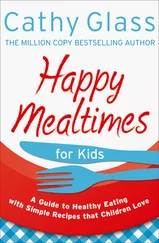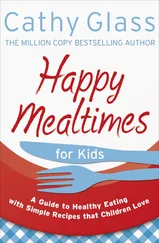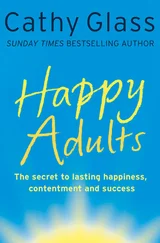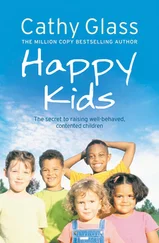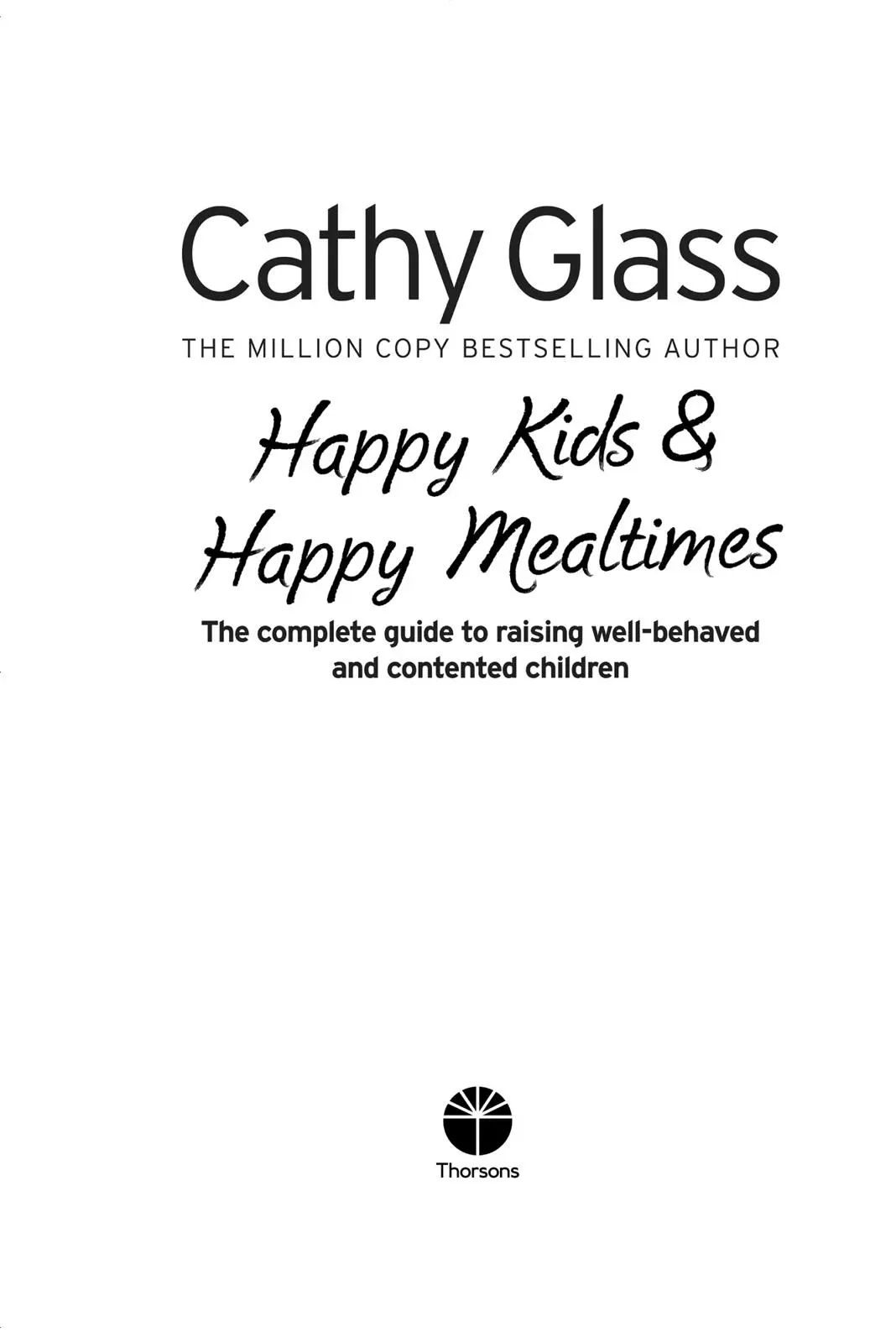
Copyright Contents Cover Title Page Copyright Introduction: Why? Happy Kids Happy Mealtimes for Kids Also by Cathy Glass Cathy Glass If you loved this book... Index About the Publisher
HAPPY KIDS
 An imprint of HarperCollins Publishers 1 London Bridge Street London SE1 9GF
An imprint of HarperCollins Publishers 1 London Bridge Street London SE1 9GF
www.harpercollins.co.uk
First published by HarperCollins Publishers in 2010
FIRST EDITION
© Cathy Glass 2010
Cover design layout © HarperCollins Publishers 2010 Cover photograph © Eric O’Connell/Getty Images
Cathy Glass asserts the moral right to be identified as the author of this work
A catalogue record of this book is available from the British Library
All rights reserved under International and Pan-American Copyright Conventions. By payment of the required fees, you have been granted the non-exclusive, non-transferable right to access and read the text of this e-book on-screen. No part of this text may be reproduced, transmitted, down-loaded, decompiled, reverse engineered, or stored in or introduced into any information storage and retrieval system, in any form or by any means, whether electronic or mechanical, now known or hereinafter invented, without the express written permission of HarperCollins e-books.
Find out about HarperCollins and the environment at www.harpercollins.co.uk/green
Source ISBN: 9780007339259
Ebook Edition © OCTOBER 2010 ISBN: 9780007351770
Version: 2015-01-08
HAPPY MEALTIMES
 An imprint of HarperCollins Publishers 1 London Bridge Street London SE1 9GF
An imprint of HarperCollins Publishers 1 London Bridge Street London SE1 9GF
www.harpercollins.co.uk
First published by HarperCollins Publishers in 2012
FIRST EDITION
© Cathy Glass 2012
Cover design © HarperCollins Publishers Ltd 2012
Cathy Glass asserts the moral right to be identified as the author of this work
A catalogue record of this book is available from the British Library
All rights reserved under International and Pan-American Copyright Conventions. By payment of the required fees, you have been granted the non-exclusive, non-transferable right to access and read the text of this eBook on-screen. No part of this text may be reproduced, transmitted, down-loaded, decompiled, reverse engineered, or stored in or introduced into any information storage and retrieval system, in any form or by any means, whether electronic or mechanical, now known or hereinafter invented, without the express written permission of HarperCollins.
Find out about HarperCollins and the environment at www.harpercollins.co.uk/green
Source ISBN: 9780007497485
Ebook Edition © SEPTEMBER 2012 ISBN: 9780007497492
Version: 2015-01-08
Thorsons
An imprint of HarperCollins Publishers 1 London Bridge Street London SE1 9GF
www.harpercollins.co.uk
First published by Thorsons 2015
FIRST EDITION
© Cathy Glass 2015
Cover photograph © Eric O’Connell/Getty Images
Cover layout design © HarperCollins Publishers Ltd
Cathy Glass asserts the moral right to be identified as the author of this work
All rights reserved under International and Pan-American Copyright Conventions. By payment of the required fees, you have been granted the nonexclusive, non-transferable right to access and read the text of this e-book on screen. No part of this text may be reproduced, transmitted, downloaded, decompiled, reverse engineered, or stored in or introduced into any information storage retrieval system, in any form or by any means, whether electronic or mechanical, now known or hereinafter invented, without the express written permission of HarperCollins e-books.
Find out about HarperCollins and the environment at www.harpercollins.co.uk/green
Ebook Edition © JANUARY 2015 ISBN: 9780008118334
Version: 2015-01-08
Contents
Cover
Title Page
Copyright
Introduction: Why?
Happy Kids
Happy Mealtimes for Kids
Also by Cathy Glass
Cathy Glass
If you loved this book...
Index
About the Publisher
Introduction: Why? Contents Cover Title Page Copyright Introduction: Why? Happy Kids Happy Mealtimes for Kids Also by Cathy Glass Cathy Glass If you loved this book... Index About the Publisher
Why another book on child rearing? The idea came from my readers. After the publication of my fostering memoirs I received thousands of emails from parents and childcare workers around the world. They sent their love and best wishes for the children I had written about, and also praised me for the way I had managed the children’s often very difficult behaviour:
I tried that method and it worked …
What a good idea …
My son used to be very controlling so I handled it as you did and (amazingly) he stopped.
I’d never thought of dealing with my daughter’s tantrums that way before …
I now talk to my children rather than at them.
You should write a book!
Their comments made me realise that the techniques I use for successfully changing children’s unacceptable behaviour were not universally known – indeed far from it. I wasn’t sure I knew what I did, only that it worked. So I began analysing how I approached guiding, disciplining and modifying children’s behaviour, the psychology that lay behind my techniques and why they worked. This book is the result.
As a parent you want the best for your child: you want them to be a happy, self-assured individual who can fit confidently into society.
As a parent you are responsible for making that happen. There will be others involved in forming your child – teachers, siblings, friends, relatives, etc. – who will have some influence on your child, but ultimately your son or daughter will be the product of your parenting, good and bad.
I often feel it is a great pity that, as parents, we are not given training in the job of child rearing. No other profession would unleash an employee on a job without basic training and on-going monitoring, but when we become parents, the baby is put into our arms and, apart from a few words of encouragement from a kindly midwife and weekly trips to the clinic to weigh the baby, we’re left to get on with it. We’re supposed to know what to do, having somehow absorbed along the way the contents of volumes of baby and child-rearing manuals, and the accumulated knowledge of a century of child psychologists. The most important job in the world is left to ‘instinct’, without a single course on the techniques of child rearing. Little wonder we quickly feel inadequate when baby doesn’t do as expected. And why should he? He relies solely on us, and yet we don’t always know what to do.
Unlike parents, as a foster carer I receive regular training in all aspects of child development, including teaching children how to behave correctly. I also have a degree in Education and Psychology. My 3Rs technique is a result of my training, studies and research, and years and years of experience – I’ve had plenty of children to practise on during my fostering career! The 3Rs are Request, Repeat and Reassure. The technique is incredibly easy and successful, and can be applied to all ages.
Читать дальше
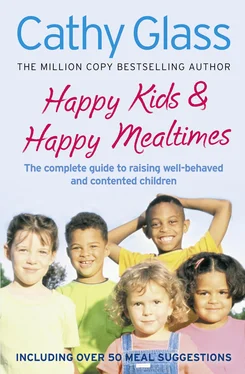

 An imprint of HarperCollins Publishers 1 London Bridge Street London SE1 9GF
An imprint of HarperCollins Publishers 1 London Bridge Street London SE1 9GF